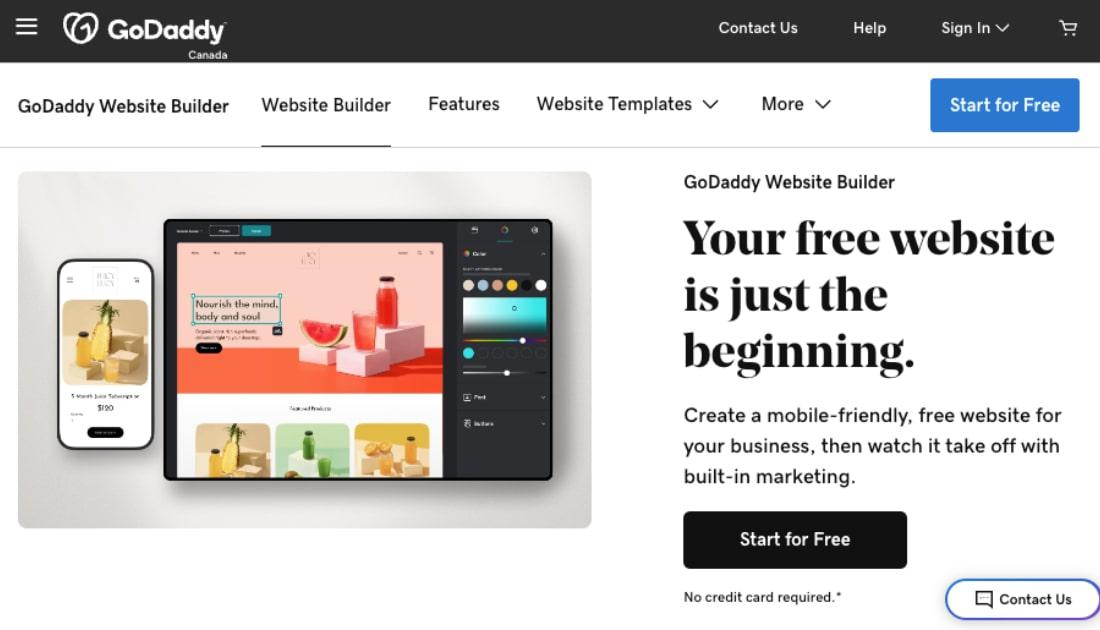Canadians have been told to go home and stay there — and most are doing just that. Now, tired of baking and organizing the spare room, some have turned to their self improvement lists. If you've decided to finally get cracking on those real estate courses you've been meaning to take, you are in the right place.
It's hard to say what the world will look like after COVID-19 is over, but it's a safe bet that people will still need to buy and sell property.
A career in real estate can be extremely rewarding, as:
- Your time is flexible
- Your income potential is unlimited
- You can work as many (or as few) hours as you want
However, it comes with some important challenges to remember.
To start, the real estate industry has one of the highest quit rates. So you need to have a solid plan in order to succeed in this up-and-down environment.
Here is everything it takes to become a real estate agent in Canada — from your first real estate agent course to your first sale.
Related: Should you get your real estate license?
The road to real estate agent
Becoming a successful real estate agent takes more than a few real estate courses. Here’s the start-to-finish list of steps needed:
- Understand local education and licensing requirements.
- Choose what type of agent you want to be.
- Find a brokerage that will support you.
- Choose a niche and brand yourself.
- Write a lead-generation plan and stick to it.
- Go slow and invest in the right things.
- Forget about hard-selling.
Ready to see if this is a project worth digging into? Let's go.
1. Understand local education and licensing requirements

Real estate education and licensing requirements vary from province to province, so you need to open up a Google search and type in these keywords:
“how to become a real estate agent in [enter the name of your province]”
According to the Canadian Real Estate Association (CREA), you will first be required to meet a minimum educational level in order to be allowed to access the educational content and write the in-class exam.
Once you receive your license, you can become a member of a local real estate board. This not only gives you the honour of being called a “Realtor,” but you also gain access to various training options and resources to improve your real estate knowledge and help you succeed in this career.
Editor’s note: A high-performing website is key to any agent's success. Launch your website today with our 30-day risk-free trial. Includes IDX Broker integration, plus tools to help you show up everywhere that matters.
2. Choose what type of agent you want to be
When you enroll in a real estate licensing program, you will need to choose what type of agent you want to be.
For example, in Alberta you can choose up to four practice areas.
Alberta real estate agents can choose:
- Residential (buy and sell residential properties)
- Commercial (office, industrial, retail or multi-residential properties)
- Rural agent (farms and acreages)
- Property manager
However, you are only required to choose one area of specialization in order to be licensed.
3. Find a brokerage that will support you
Before contacting a brokerage, you should interview agents from various brokerages. The reason you need to do this vs. approaching the brokerage directly is that many offer referral incentives for real estate agents who bring a new agent to their group. These incentives are also given to the new agent, in the form of a monetary bonus or a major discount on their fees.
You do not get those benefits if you approach a brokerage directly, so talk to various agents first and ask them about such programs. Interview multiple brokerages and choose one that offers:
- Unwavering support
- Mentorship
- Education
- Training sessions
- Additional services such as sign services, printing and quick conveyancing
Some even offer what’s called the Open House List, where you can attend your coworkers’ open houses and get leads.
4. Choose a niche and brand yourself
You need to choose a specific niche (e.g. homeowners who are downsizing, expired listings, etc.) and brand yourself. The Canadian Real Estate Association has over 120,000 members, a figure that’s nearly doubled since 2000. How are you going to stand out?

Do you want to help:
- Families
- First-time home buyers
- Empty-nesters
- Divorcees
- Real estate investors
Or maybe you’d like to focus only on condominiums, cottage homes, acreages, farms, luxury homes, etc.? If you want to choose a specific community/quadrant of the city — called “a farm” in real estate world — and become an expert on it, make sure to choose a community with a high turnover (the pace at which homes are selling).
Make a choice and stick to it for at least six months. Don’t be afraid to change things up if things are not working out for you or if you see that your strength lies somewhere else. Sometimes you have to try different things to find out what you excel at and what you like best.
5. Write a lead-generation plan and stick to it
You need to have marketing, content and lead-generation plans in place in order to set yourself up for long-term success. Remember that real estate and marketing expenses can add up, so make sure to have some savings that can get you through your first year.
Understand that the way people buy real estate is changing. People start their home-buying/selling process with online research, so you need to be there. According to NAR, in 2018, 44 percent of homebuyers looked for properties online first.
Create a strong social media presence and share interesting community news, photos and local content.
You need to become known as a real estate influencer in your community/city. Find your most effective lead-generation methods — for example, open houses, social media, blogging, growing an email list, newsletters, direct mail, sponsorships, online advertising, YouTube videos, etc — and own them.
6. Go slow and invest in the right things
The life of a new agent can be unpredictable, so you need to take it slow. If possible, test the waters and start doing real estate part-time to see if it’s something you see yourself doing long-term. Ask to shadow a Realtor who works in the same brokerage.
Remember that once you get busy, you will be working evenings, weekends and sometimes at odd hours writing that late-night offer, so you need to be always available for your clients. The real estate cycle can be slow at times, so you can have a month full of leads and closings, and then nothing for three months. You need to prepare yourself for slower times.
First-year don’ts
In the first year, while you are figuring out your branding and niche, do not get 1,000 high-end business cards printed because things can change quickly!
Don’t invest in the pricey lead-generation real estate website if you do not like cold calling. Do your research before investing in anything in your first year.
Become friends with other agents in your brokerage and ask what worked and what didn’t work for them.
7. Forget about hard-selling

People do not care about the number of houses you’ve sold or how great you are — they are all about what you can do for them. Focus on your customer’s pain points and deliver value to them.
You do need to be an extrovert to do this.
A few ideas on how to do this:
- Write blog posts on topics that will help your buyer or seller
- Provide solutions to their questions
- Make videos about your city/community
- Attend events and organize educational seminars
- Create buying/selling guides that are exciting to read (do not copy everyone else!)
And most importantly, be there for your clients, consistently follow-up with them and keep in touch with them over the years.
Now you can sign up for those real estate courses!
Still interested? Helping someone reach their real estate goals and making a difference in someone’s life can be extremely rewarding.
Just remember that this type of career requires a lot of hard work and planning.
It’s not as simple as enrolling in a real estate course and receiving your license. But if you’re sure you’re ready for this exciting journey, you are all set to enroll in the real estate courses required in your area.







